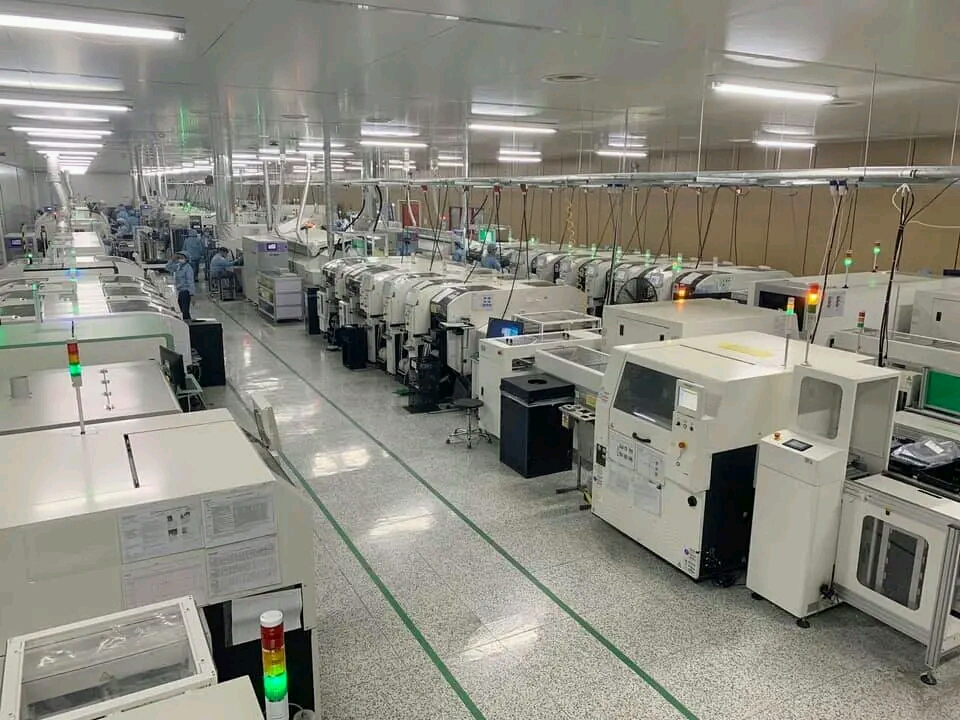Technological Revolution: Unveiling the Future of Work and the Skills Shaping Tomorrow’s Workforce

Technological Revolution: Unveiling the Future of Work and the Skills Shaping Tomorrow’s Workforce
? Embracing the Future: The Thrilling Dance of Technology and Workforce! ?
? Step into the world of tomorrow, where technology and innovation intertwine with the dynamic dance of the workforce. In this captivating era, we witness the awe-inspiring impact of technology on jobs and the ever-evolving landscape of workforce automation. Buckle up, for we are about to embark on a thrilling journey of discovery!
? The Transformative Tide: Unleashing the Power of Technology! ?
From the invention of the wheel to the age of artificial intelligence, technology has propelled humanity forward, pushing boundaries and reshaping our reality. In this digital era, breakthroughs such as automation, robotics, machine learning, and the Internet of Things (IoT) have become instrumental in revolutionizing industries across the globe.

? The Shifting Sands: Redefining Job Roles and Opportunities! ?
As technology evolves, so do job roles. The impact of automation on the workforce is profound, with some tasks being seamlessly integrated into the digital realm. Mundane, repetitive tasks are increasingly being delegated to machines, freeing up human potential for more strategic and creative endeavors. This shift fosters an environment where individuals can explore their unique skills and abilities, focusing on problem-solving, critical thinking, and innovation.
? The Perfect Partnership: Humans and Machines Unite! ?
Contrary to popular fears, technology isn’t here to replace us—it’s here to amplify our capabilities. The synergy between humans and machines is a perfect partnership, where automation complements our skill set, augmenting productivity and efficiency. Rather than robbing us of jobs, technology presents an opportunity to redefine our roles, enabling us to excel in areas that require human ingenuity, empathy, and adaptability.
? Expanding Horizons: New Frontiers and Uncharted Waters! ?
As technology advances, new frontiers emerge, leading to the creation of entirely new industries and job opportunities. Just as the rise of computers gave birth to software developers and data scientists, breakthroughs in fields like artificial intelligence, renewable energy, virtual reality, and biotechnology are opening doors to an array of exciting professions that were once unimaginable. The future holds endless possibilities for those willing to embrace change and embark on a voyage into uncharted waters.
Technological Revolution: Unveiling the Future of Work and the Skills Shaping Tomorrow’s Workforce

? Empowering the Workforce: The Quest for Lifelong Learning! ?
In this rapidly evolving landscape, continuous learning is the key to staying relevant and empowered. As automation takes over routine tasks, upskilling and reskilling become paramount. Individuals and organizations alike must embark on a lifelong learning journey, nurturing a growth mindset that fuels innovation, adaptability, and resilience. The workforce of the future is one that embraces change, harnessing the power of technology as a catalyst for personal and professional growth.
? So, What Lies Ahead? The Future Awaits! ?
The impact of technology on jobs and workforce automation is undeniable. While some roles may undergo transformation or become obsolete, this evolution creates room for new, more fulfilling opportunities. The workforce of tomorrow will be defined by individuals who possess the agility to adapt, the hunger to learn, and the audacity to embrace change. Together, humans and machines will coexist harmoniously, building a future where innovation and collaboration thrive.
? Embrace the dance of technology and workforce automation, for it is in this synergy that we unlock a world of endless possibilities. The future beckons, and it’s time to embark on an extraordinary journey into the realms of innovation and human potential. Let’s step boldly into the unknown, ready to shape our destiny and create a future that surpasses our wildest dreams! ?
Technological Revolution: Unveiling the Future of Work and the Skills Shaping Tomorrow’s Workforce

The impact of Technology on Remote work and The Skills Required for The Future of Work.
In recent years, advancements in technology have revolutionized the way we work, particularly with the rise of remote work. The COVID-19 pandemic further accelerated this trend, forcing organizations to adapt quickly and rely heavily on digital tools and virtual collaboration. As a result, the impact of technology on remote work has been profound, fundamentally reshaping the nature of work and the skills required for success in the future.
One of the key impacts of technology on remote work is the ability to break free from the constraints of physical location. Remote work allows individuals to collaborate and contribute to projects from anywhere in the world, reducing the need for a centralized office space. This flexibility has opened up new opportunities for both employees and employers. Businesses can tap into global talent pools, accessing highly skilled individuals regardless of geographical boundaries. At the same time, workers can enjoy a better work-life balance, eliminating commuting time and potentially living in areas with a lower cost of living.
The advent of technology has also revolutionized communication and collaboration in remote work settings. Team members can now connect seamlessly through a variety of digital tools, such as video conferencing platforms, project management software, and instant messaging applications. These tools enable real-time collaboration, making it easier for remote teams to stay connected, exchange ideas, and work together efficiently. The ability to share documents and resources instantaneously has increased productivity and streamlined workflows.
However, the shift to remote work driven by technology also presents challenges and necessitates the acquisition of new skills. Effective remote work requires individuals to be self-motivated, disciplined, and proficient in managing their time. Without the traditional structure of an office environment, remote workers must be able to prioritize tasks, set goals, and maintain focus. Additionally, strong communication skills are crucial in remote settings, as clear and concise virtual communication becomes paramount when face-to-face interactions are limited.
Moreover, remote work often demands a higher degree of digital literacy. Employees must be adept at navigating various software applications, collaboration tools, and online platforms. Familiarity with video conferencing etiquette, file sharing, and document collaboration is vital for effective remote work. Additionally, proficiency in cybersecurity and data privacy practices is essential to protect sensitive information and ensure secure remote collaboration.
SEE ALSO : WHAT IS HONEYPOT AND USES?
Looking ahead, the future of work will continue to be shaped by technology. Artificial intelligence, automation, and machine learning will increasingly play a significant role in various industries, transforming job roles and tasks. As routine and repetitive tasks become automated, there will be a growing demand for skills that cannot be easily replicated by machines. These include critical thinking, problem-solving, creativity, emotional intelligence, and adaptability. The ability to learn new technologies quickly and continuously upskill will also be crucial for individuals to thrive in the future workforce.
SEE ALSO : 38 PROFITABLE TECH BUSINESSES YOU CAN DO IN 2023
In conclusion, technology has had a profound impact on remote work, reshaping the way we collaborate and the skills required for success. Remote work offers flexibility, global opportunities, and improved work-life balance, but it also demands self-motivation, strong communication skills, and digital literacy. As technology continues to advance, individuals must embrace lifelong learning and cultivate the skills necessary to navigate the evolving landscape of the future of work.
Comments are closed.